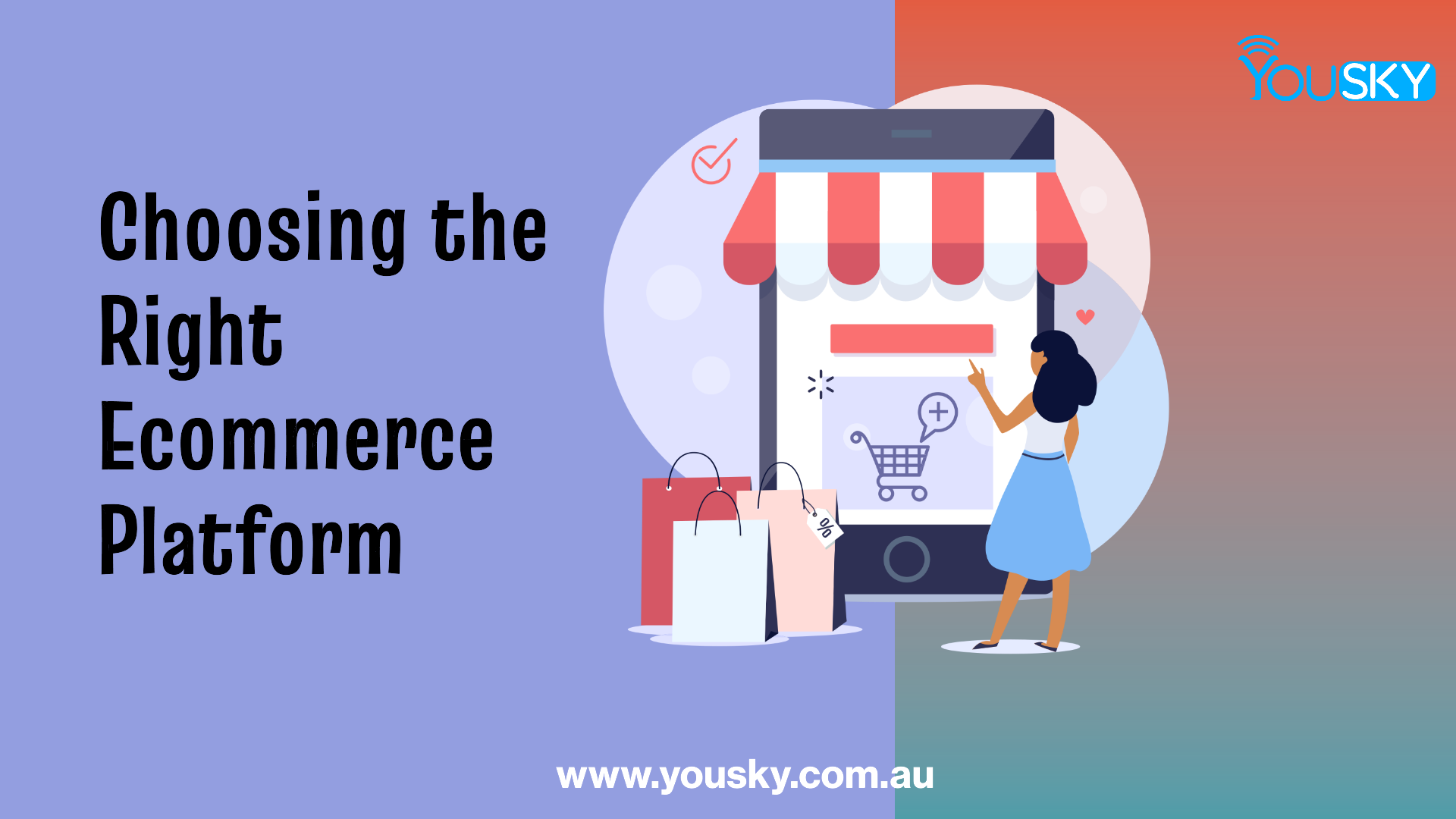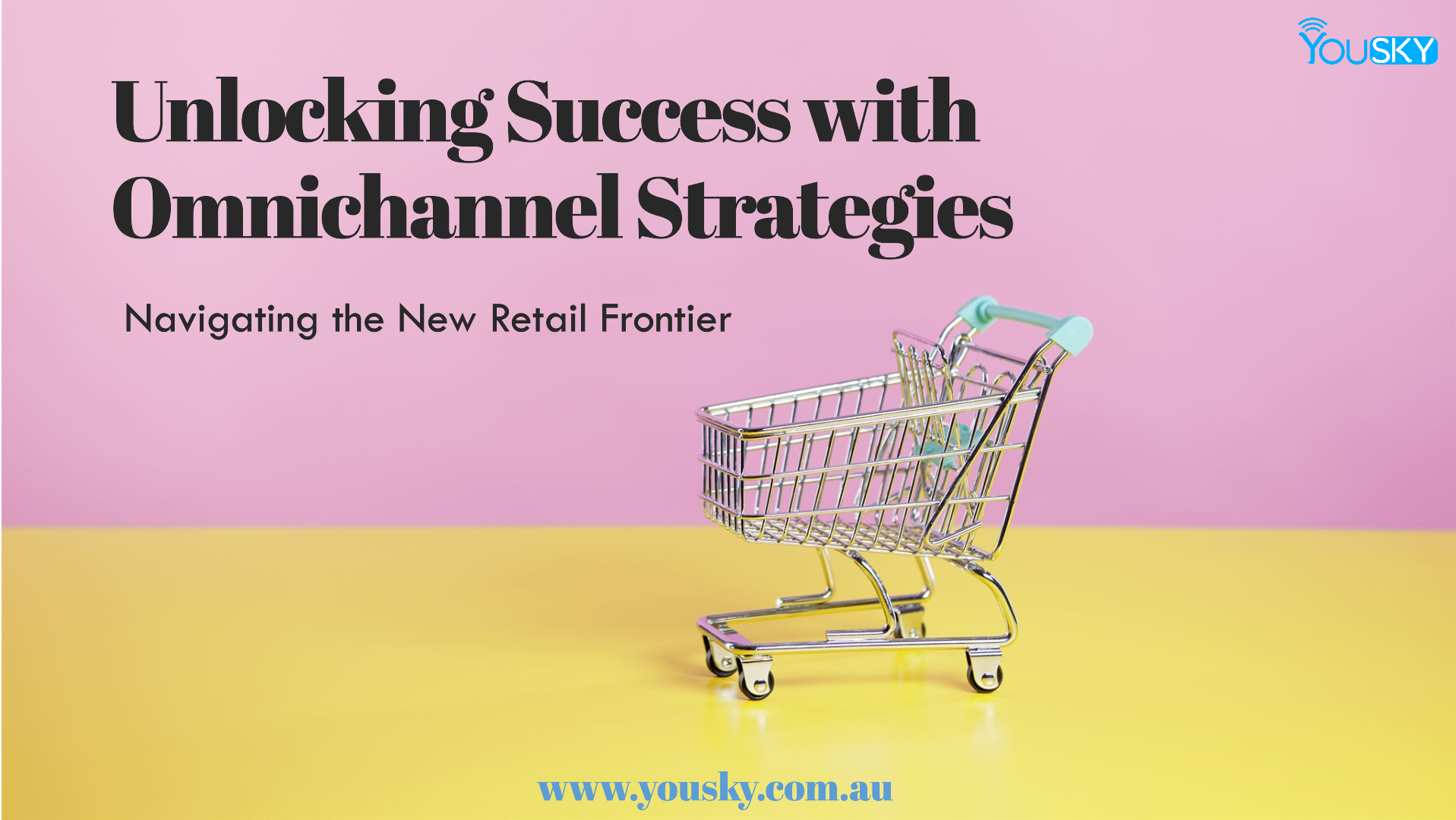
In the dynamic landscape of ecommerce, selecting the right platform is crucial for businesses aiming to establish a robust online presence, drive sales, and enhance customer engagement. With a myriad of options available, each boasting unique features and capabilities, choosing the optimal ecommerce platform can be daunting. This article aims to provide a comprehensive comparison of the top 10 ecommerce platforms, outlining their pros and cons, and how Yousky collaborates with businesses to ensure a tailored fit-for-purpose solution.
Understanding the Top Ecommerce Platforms
1. Shopify
– Pros: User-friendly interface, extensive app store, great for beginners, excellent customer support.
– Cons: Transaction fees on third-party payment gateways, customization limitations for complex needs.
2. WooCommerce
– Pros: Built on WordPress, highly customizable, scalable with plugins, no transaction fees.
– Cons: Requires hosting, may need technical expertise for setup and maintenance.
3. BigCommerce
– Pros: Powerful built-in features, scalable for large inventories, good SEO capabilities.
– Cons: Higher pricing tiers, limited flexibility compared to open-source platforms.
4. Magento
– Pros: Open-source flexibility, robust feature set, scalable for enterprise-level businesses.
– Cons: Requires technical expertise for setup and maintenance, higher initial costs.
5. Wix
– Pros: Drag-and-drop website builder, beginner-friendly, affordable pricing plans.
– Cons: Limited scalability for larger businesses, may not support complex ecommerce needs.
6. Squarespace
– Pros: Beautiful templates, easy to use, integrates well with other Squarespace products.
– Cons: Limited ecommerce-specific features compared to dedicated platforms.
7. Volusion
– Pros: All-in-one solution with built-in features, good customer support, scalable for growth.
– Cons: Some users find it less intuitive than competitors, customization limitations.
8. PrestaShop
– Pros: Open-source, customizable, extensive community and marketplace.
– Cons: Requires technical knowledge for setup and maintenance, fewer out-of-the-box features.
9. Weebly
– Pros: Drag-and-drop builder, affordable pricing plans, integrates well with other Weebly products.
– Cons: Limited scalability for larger ecommerce operations, fewer advanced features.
10. Square Online
– Pros: Integrates well with Square POS system, easy setup, good for small businesses.
– Cons: Limited customization options, may require additional integrations for complex needs.
How Yousky Helps Businesses Find the Right Ecommerce Tool
At Yousky, we understand that choosing the right ecommerce platform is not a one-size-fits-all decision. Our approach is centered around aligning technology solutions with the specific needs and growth objectives of businesses. Here’s how we guide businesses through the process:
1. Comprehensive Needs Assessment: We start by conducting a thorough assessment of the business’s ecommerce requirements, including sales volume, product complexity, integration needs, and future growth plans.
2. Customized Solution Design: Based on the assessment, we design a customized ecommerce solution that leverages the strengths of various platforms. Whether it’s Shopify for its user-friendly interface, WooCommerce for its flexibility, or Magento for enterprise-level scalability, we tailor our recommendations to meet specific business goals.
3. Implementation and Integration: Our team of experts manages the seamless integration of the chosen ecommerce platform with existing systems, ensuring minimal disruption to operations and optimized performance from day one.
4. Training and Support: We provide comprehensive training sessions to empower teams with the skills needed to manage and maintain the ecommerce platform effectively. Our ongoing support ensures that businesses can address challenges promptly and capitalize on new opportunities in the ecommerce space.
5. Continuous Optimization: Recognizing that business landscapes evolve, we continuously monitor performance metrics and provide insights for optimization. Whether it’s enhancing user experience, improving SEO rankings, or implementing new features, Yousky remains committed to driving long-term ecommerce success.
In conclusion, selecting the right ecommerce platform is a critical decision that can significantly impact a business’s online success. By understanding the strengths and weaknesses of each platform and aligning them with specific business needs, Yousky empowers businesses to make informed decisions that drive growth, enhance customer satisfaction, and achieve competitive advantage in the digital marketplace.
Are you ready to elevate your ecommerce strategy? Contact Yousky today and let us guide you towards the ecommerce solution that fits your business goals seamlessly.


